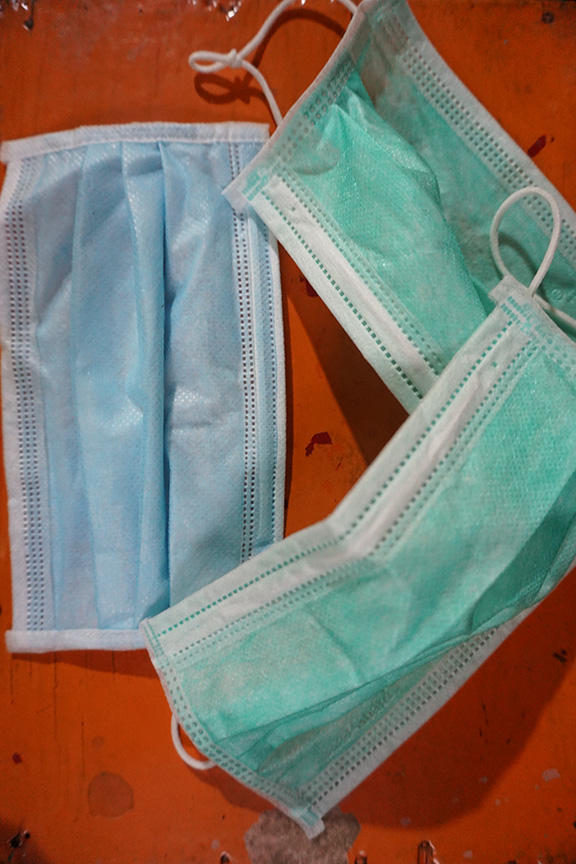DAVAO CITY (MindaNews / 11 June) – People should properly handle their disposable facemasks and avoid mixing them with other household wastes as they pose hazards to health and the environment, an official of Interface Development Interventions said.
 Disposable facemasks: New waste problem in the new normal.
Disposable facemasks: New waste problem in the new normal.
Lawyer Mark Penalver, program coordinator of the Davao-based environment group said disposable facemasks, considered “special wastes,” must be properly handled to prevent the risk of transmitting the coronavirus disease (COVID-19) and causing pollution.
He said the people must take precaution and change their “wasteful attitude” to help combat the invisible enemy.
“Facemasks are considered special wastes because of the potential hazards it may pose especially on health and, in the long run, to the environment. Thus, there are ways on how to properly handle these kinds of wastes,” he said.
He urged households to separate the disposable facemasks from the normal household wastes.
“These should be separated and must be disinfected to ensure that any pathogens are exterminated, to keep our family and our garbage collectors safe,” he added.
Penalver told Dabawenyos that improper disposal of wastes is punishable under the Ecological Solid Waste Management Ordinance of the Davao City and Republic Act 9003 or the Ecological Solid Waste Management Act of 2000.
But Lenny Joy Rivera, Department of Health (DOH)-Davao Region assistant regional director allayed fears that facemasks pose health hazards since ordinary people are not in close contact with COVID-19 positive patients.
“The definition of infectious waste is in close contact with… the liquids, materials that are infectious, like blood in the hospital. These are what we consider (infectious). But for facemask, proper waste disposal is what we need to do,” she said.
DOH-Davao revealed last Monday that at least 80 of the 119 active coronavirus disease (COVID-19) cases as of June 8 were asymptomatic or show no signs of the infection while 32 had mild symptoms, four were severe, and three were critical.
According to the World Health Organization, majority of the transmissions are through patients with symptoms but the actual rates of the asymptomatic transmission of COVID-19 have yet to be known. (Antonio L. Colina IV/MindaNews)
